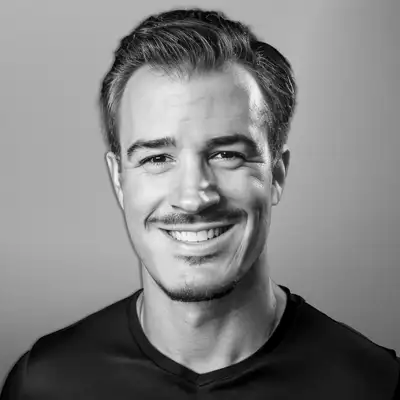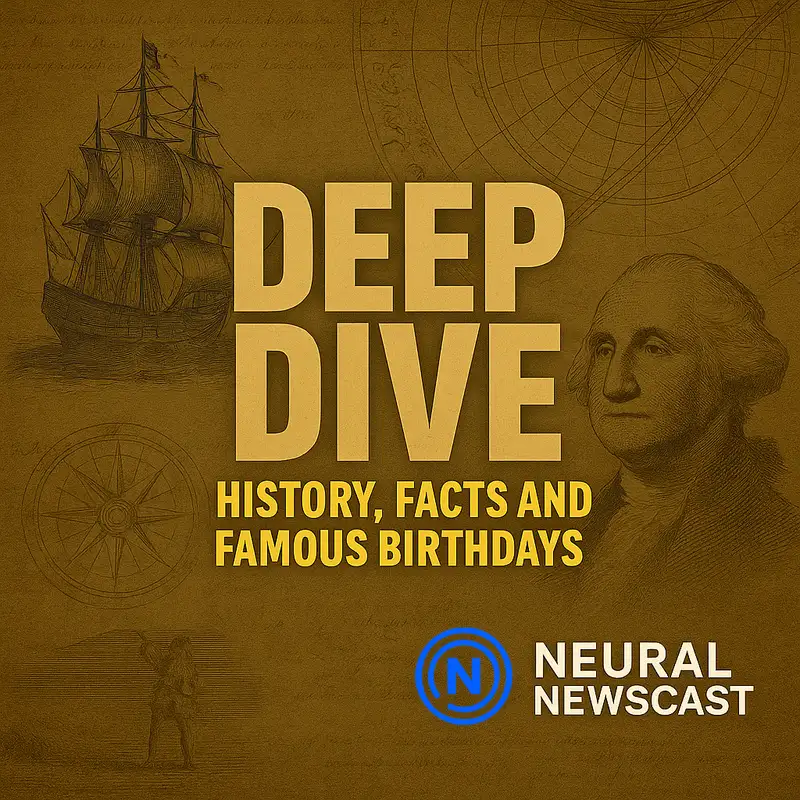Deep Dive: Televised Debates & Artistic Visions: From Kennedy to Picasso - July 11, 2025
NNC. All the day's news ready when you are.
Welcome to Neural Newscast Deep Dive. I'm Lila and with me is Monica.
Today we're exploring some fascinating topics. You know, Monica, on this day back in 1960,
something rather revolutionary happened in the realm of politics and media.
John F. Kennedy and Richard Nixon squared off in the first ever televised presidential debate.
Quite the game changer, wasn't it?
Absolutely, Lila.
It marked a transformative moment in how political campaigns were conducted.
I mean, think about it.
Before this, debates were strictly about what you said, right?
But this one, it introduced a whole new element, how you looked saying it.
Right.
It was as much about the charisma and visual appeal as it was about policy and rhetoric.
Kennedy, of course, understood this brilliantly.
His on-screen confidence and poise practically oozed charisma.
Exactly.
And Nixon, who wasn't quite as comfortable in front of the camera, suffered for it.
There's that famous story of him rejecting makeup for the debate,
which left him looking rather, well, unwell, under the harsh studio lights.
Oh, yes, that image is almost iconic now.
The shadow of his five o'clock stubble, his gray suit blending against the backdrop,
it all contributed to the narrative of perception over mere substance.
People who listened on the radio actually thought Nixon won,
yet TV viewers leaned heavily towards Kennedy.
That contrast is fascinating, isn't it?
It perfectly illustrates the shift in political communication.
The debate wasn't just a sparring of ideas, it was a visual spectacle, and it demonstrated
television's power to swath the electorate's perception.
Indeed, it laid the groundwork for the media-driven campaigns we see today.
And in a broader sense, it sparked a conversation about image versus reality in leadership,
something we're still grappling with.
That's true.
The stakes have only grown since then, with social media amplifying everything tenfold.
We've moved from managing a single televised image to a constant, multifaceted digital persona.
which Kennedy and Nixon probably never even imagined.
It's fascinating how a single debate set off a ripple effect,
shaping not just future campaigns,
but also how leaders are crafted and presented globally.
Exactly, Lula.
And it's a potent reminder of how media can elevate or undermine political figures.
The 1960 debate was a masterclass in the power of visual storytelling
fundamentally altering the political landscape.
And one thing's for sure, neither politics nor media have been the same since.
Today we celebrate the birthdays of Pablo Picasso, 1881, Jonas Salk, 1914, and Sylvia Plath, 1932.
Ah, Picasso, a name synonymous with revolutionizing art.
His impact on the arts is just unparalleled, wouldn't you say?
Absolutely, Monica.
Picasso was a titan in reshaping the visual language of the 20th century.
Think about Cubism.
It's not just an art form, it's a way of seeing the world from multiple perspectives.
What other artists so boldly challenged the conventions of form and perspective like he
did?
Exactly.
And what I find fascinating is his ability to transcend not just artistic movements, but
also political ones.
His piece Guernica is such a powerful statement against the horrors of war.
It resonates on so many levels.
Right?
Guernica is haunting in its stark depiction of suffering and chaos during the Spanish Civil
War.
It's a brilliant fusion of personal style and political commentary.
The way it captures grief and rage, it's visceral.
And isn't it interesting how Picasso managed to maintain his avant-garde edge even as he
aged?
His later works still pulse with that daring energy and inventiveness, whether it was painting,
sculpture, or ceramics.
That's so true, Monica.
Oh, and did you know that Picasso was also quite the prolific creator?
It's estimated he produced about 50,000 artworks during his lifetime.
Imagine the dedication and relentless drive he had.
Incredible, really.
And it's like his influence still lingers today.
Artists around the globe are continuously inspired by his fearlessness and his ability to redefine
boundaries.
I'm sure his insights on perspective have even permeated into other fields, like diplomacy,
where understanding different viewpoints is crucial.
And I think that's precisely his enduring legacy.
Picasso didn't just alter the art world.
He changed how we conceptualize creativity and expression.
He's a reminder of the power of innovation,
of daring to see the world differently.
Indeed, Lila.
Picasso's life and work remind us that creativity and courage often go hand in hand,
opening dialogues that extend beyond the canvas and into the fabric of society itself.
We'll be right back after this short break.
Thanks for listening to NNC Neural Newscast.
This is Chad Thompson, the founder of Neural Newscast.
If you want to go deeper, we've got more stories and context waiting for you at our website,
neuralnewscast.com.
Thanks for staying with us on Neural Newscast's Deep Dive.
Let's get back to our discussion.
Did you know there's a fascinating trend where people are obsessing over these incredibly challenging Sudoku puzzles?
They're called two very fun but very hard Sudokus.
And they're sparking quite the conversation in both artistic and analytical communities.
Really? I hadn't heard about that.
What's driving this sudden interest in such complex puzzles?
It's a curious blend, actually.
On one hand, you have the pure intellectual challenge.
People love to test their boundaries.
On the other, there's an artistic element.
The complexity of these puzzles, the creativity in their design.
It's almost like viewing a piece of intricate art.
That's intriguing.
It reminds me of how certain diplomatic issues require both analytical precision and creative problem-solving.
I suppose that resonates with the human tendency to tackle daunting challenges, right?
Precisely. It's that duality that captivates people.
And Sudoku isn't just numbers in a grid anymore, it's a canvas of possibilities.
Some enthusiasts even equate solving these puzzles to a form of meditation,
where they're entirely consumed by the process.
So it's not just about arriving at the solution, but the journey itself.
That's quite profound.
How does that compare to say working through a diplomatic negotiation?
Fascinating parallel, Monica.
In both cases, there's a strategic element.
With Sudoku, each move impacts the entire puzzle.
Similarly, in negotiations,
each decision influences the broader context.
It's a delicate dance of intuition and logic.
And perhaps both require certain patience and resilience.
I imagine these puzzles aren't solved in a quick sitting, are they?
Exactly. They're an exercise in persistence.
Solvers often spend hours, sometimes days, contemplating strategies, recalibrating their approach.
It's a true test of one's problem-solving perseverance.
It makes me think of seasoned diplomats who must navigate the intricate webs of international relations.
Sometimes that involves backtracking, revisiting earlier decisions, and adapting strategies.
Yes, and just like in diplomacy, collaboration can be key.
There's a growing community around these puzzles, people sharing insights, strategies, much
like policymakers might exchange ideas or best practices.
A societal microcosm of collective problem solving.
It's remarkable how something as simple as a puzzle can reflect broader human experiences.
Absolutely.
It's a testament to the interwoven nature of analytical rigor and creative exploration.
Whether you're solving a Sudoku or navigating geopolitical landscapes,
the underlying principles are strikingly similar.
And perhaps that's why this trend captivates so many.
It's a mirror of our daily lives showcasing both the challenges and the triumphs.
We hope you enjoyed this deep dive.
From Lila and all of us at Neural Newscast, I'm Monica.
Join us next time.
You've been listening to Neural Newscast, AI-powered, human-reviewed.
Keep up with us on XBumble and Facebook and dive deeper at neuralnewscast.com.
Neural Newscast merges real and AI-generated voices to ensure rapid, high-quality news
production.
Our content is created using advanced AI models and rigorously reviewed by humans for
accuracy and fairness.
Despite efforts to prevent AI errors, occasional inaccuracies may occur.
We encourage listeners to cross-check critical details with trusted sources.
Read about our AI transparency at nnewscast.com.
Creators and Guests



